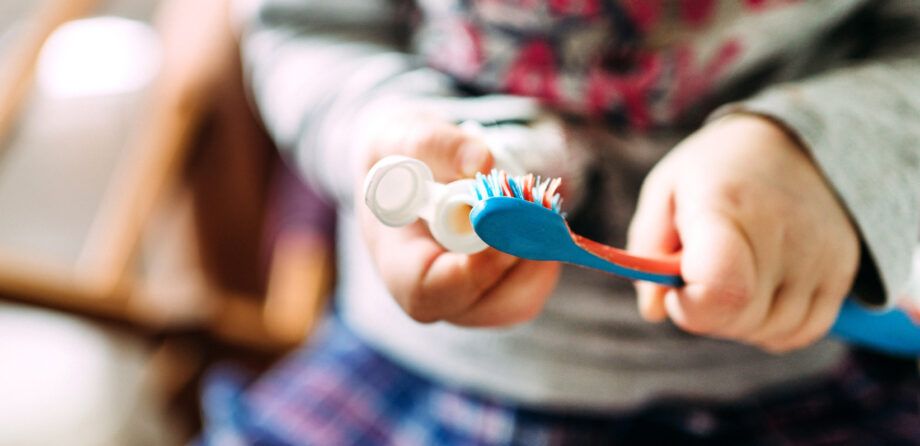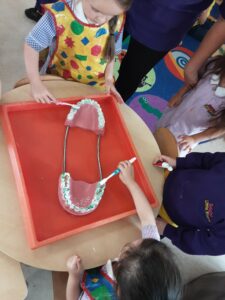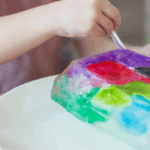
Top Oral Health Tips from NDNA Nursery of the Year South
 An NDNA award-winning Nursery has been working with The Dental Wellness Trust charity to help educate, inspire and engage parents, teachers and children. They have created 14 Easy Top Oral Health Tips for Families to keep their little ones’ teeth in good shape.
An NDNA award-winning Nursery has been working with The Dental Wellness Trust charity to help educate, inspire and engage parents, teachers and children. They have created 14 Easy Top Oral Health Tips for Families to keep their little ones’ teeth in good shape.
Bright Little Stars and Dr Saul Konviser, Director of The Dental Wellness Trust charity are taking a proactive approach to challenging tooth decay in children under five, with Bright Little Stars setting the gold standard.
Bright Little Stars Harrow was recently a finalist for the Health and Well-being award at NDNA Awards 2023, while Bright Little Stars Stanmore won Nursery of the Year South 2023.
Key studies have shown that:
Tooth decay is affecting up to 23.7% of five-year-old children in England
Tooth decay in 0-19 year olds is estimated to cost the NHS £50.9M and it is still the most common reason for hospital admission in children aged between 6 and 10 years.
This initiative is run through six London-based nurseries and has resulted in a comprehensive programme that promotes oral hygiene and offers practical tips for families to maintain healthy smiles.

With the goal of oral health care a priority, and helping parents feel more confident while caring for their little ones’ teeth, the Bright Little Stars nursery and The Dental Wellness Trust have created 14 easy-to-apply tips for families.
- Start Early: Introduce oral hygiene to your child from an early age. For infants, clean their gums with a soft, clean cloth even before their first tooth comes in.
- Choose Child-Friendly Products: Select toothbrushes that are small, soft-bristled and suitable for your child’s age. Use age appropriate fluoridated toothpaste but only a small amount (a smear) for children under three years.
- Make Brushing Fun: Use playful toothbrushes with their favourite cartoon characters or ones that play music for the recommended two-minute brushing duration. There are also fun tooth brushing songs online that you can use, for example “This is the way you brush your teeth”.
- Establish a Routine: Brushing twice a day, once in the morning and once before bedtime, should be a non-negotiable routine. This consistency will make it a habit for your child.
- Educate About Importance: Explain to your child why it’s important to keep their teeth clean. Use storybooks, videos or apps that teach about dental hygiene in a fun and engaging way.
- Lead by Example: Children often mimic their parents. Let them see you brushing your teeth, flossing, and maintaining good oral hygiene. You can even make brushing your teeth a family event. This not only makes it a fun event but also allows you to supervise your child’s brushing technique.
- Avoid Sugar-Laden Foods: Limit your child’s consumption of sugary foods and drinks as they can cause cavities. Encourage healthier alternatives such as fruits and vegetables.
- Teach Proper Technique: Show your child how to brush their teeth properly. Brush in small, circular motions and make sure to reach every tooth, including the ones at the back.
- Use a Timer: Use a timer or a toothbrushing song to ensure your child brushes for a full two minutes.
- Regular Dentist Visits: Schedule regular dentist visits for your child. The dentist can catch potential problems early and provide professional cleanings. The advice by the Royal College of Paediatric Dentists is that your child should visit the dentist by the age of one or when their first tooth comes out.
- Limit Bedtime Bottles: Avoid putting your child to bed with a bottle of milk, juice, or any sweet drink as this can lead to tooth decay.
- Use The Right Toothpaste: Children should be using a fluoride toothpaste – there are different strengths for different ages. In terms of how much you use, under 3’s need a toothpaste ball the size of a grain of rice or a fingernail. If they’re over the age of three, it’s just a pea size.
- Reward Good Behaviour: Offer small rewards or praise when your child maintains their oral hygiene routine without prompting. This positive reinforcement can encourage them to keep up their good habits.
- Make it visual: Create a brushing calendar and display it in the bathroom. Each time your child brushes their teeth in the morning and at night, they get to put a sticker on that day. This helps them see their progress and can be an incentive for regular brushing.

Similar Articles
Top tips: Supporting your team’s well-being

Early years activity: Frozen balloon explorers


